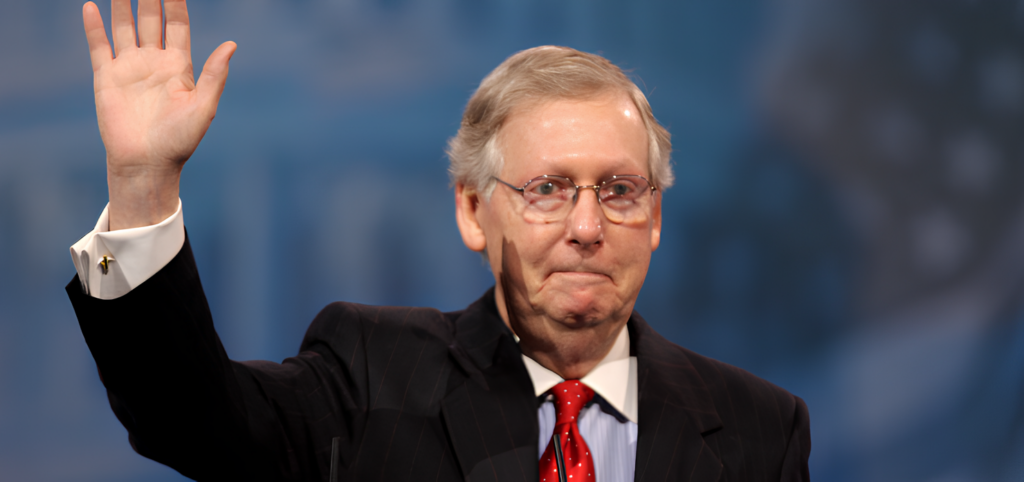Mitch McConnell Refuses to Predict Winner in Presidential Race

Senate Minority Leader Mitch McConnell, while discussing the upcoming presidential election, declined to speculate on who might win, but he predicted the race will be “very, very competitive.” Speaking at Commerce Lexington, McConnell highlighted the increasing polarization in the United States, where rural areas strongly support Republicans, while coastal regions predominantly lean Democratic, according to LEX 18.
Critical Issues on the Horizon
McConnell pointed out that the election will likely revolve around two major issues that concern the American public: inflation and the situation at the southern border. He emphasized that these topics will be central to the national conversation as voters head to the polls. Despite his insights into the key issues, McConnell refrained from making any predictions about the election’s outcome.
A Call for Bipartisan Efforts
Regardless of who wins the presidency, McConnell expressed a desire for both parties to find common ground on essential issues. He cited his support for the Bipartisan Infrastructure Bill in 2021 as a testament to successful bipartisan collaboration. Notably, McConnell was the only Republican from Kentucky in Congress to endorse the bill, which provided significant funding for infrastructure projects across the state.
Reflecting on Controversial Collaborations
McConnell also reflected on his involvement in securing the construction of the Brent Spence Bridge, a major infrastructure project in northern Kentucky. He acknowledged that his decision to stand alongside President Joe Biden during the announcement was met with criticism from some of his Republican colleagues. However, McConnell underscored the importance of the project, highlighting the failures of previous administrations, including those led by Barack Obama and Donald Trump, to move it forward.
Looking Ahead
As the election approaches, McConnell’s remarks underscore the significant challenges and opportunities both parties face. His focus on critical issues like inflation and border security suggests that these will be pivotal in shaping the national debate. At the same time, his call for bipartisan cooperation highlights the ongoing need for collaborative governance in addressing the country’s most pressing challenges.

